1. Unsafe Chlorine Levels

Chlorine is crucial for keeping public pools sanitary, but too much or too little can cause serious health issues. When chlorine levels spike, swimmers can suffer from skin irritation, respiratory problems, and even chemical burns. On the flip side, if chlorine is too low, bacteria like E. coli and cryptosporidium can thrive. Health inspectors are cracking down harder on this because improper levels are one of the most common violations they find during surprise inspections.
Many municipalities now require daily chlorine logbooks, and if those records are incomplete or forged, it’s grounds for immediate closure. With increased awareness around waterborne illness outbreaks, local governments aren’t taking any chances. Even a one-time slip-up in pool chemistry can lead to a shutdown order. It’s a clear legal liability for pool operators, especially in states with strict public health codes.
2. Staff Not Properly Certified
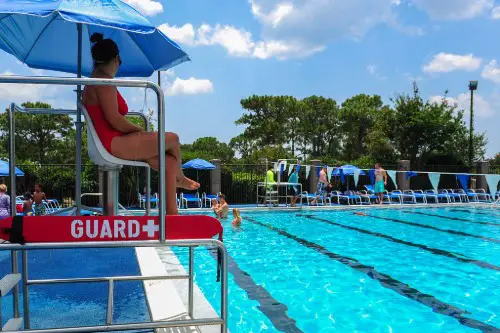
In many states, it’s illegal to operate a public pool without a certified pool operator on site or on-call. Lifeguards also need valid CPR and first-aid certifications, often renewed annually. If even one employee’s certification lapses, inspectors can legally close the facility. Unfortunately, during busy seasons, these credentials sometimes fall through the cracks.
Legal requirements around staffing have tightened, especially after several high-profile drowning incidents linked to inattentive or underqualified guards. Even if a pool is otherwise in perfect condition, improper staffing is a deal-breaker. Lawsuits related to negligent supervision are among the most expensive a municipality can face. That’s why cities are taking certification lapses extremely seriously now.
3. Poor Water Circulation and Filtration
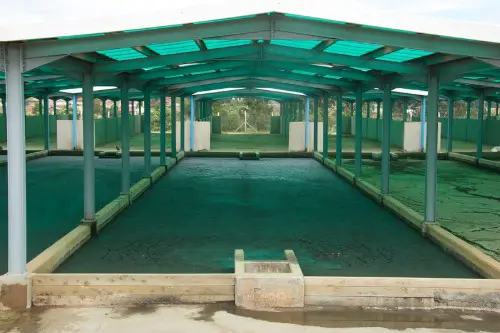
When water isn’t circulating properly, it becomes a breeding ground for algae, bacteria, and debris. Many pool codes require a certain turnover rate — how quickly the entire volume of pool water is filtered — and failing to meet that rate is a legal red flag. Broken pumps, clogged filters, or outdated systems can result in murky water and health risks. Inspectors may shut a pool down immediately if filtration problems aren’t fixed quickly.
It’s not just about aesthetics; stagnant water can mask dangerous contaminants. In some cases, inadequate filtration has been linked to parasitic outbreaks that led to multi-day hospital stays. Older municipal pools often suffer from deferred maintenance in this area, making them particularly vulnerable to inspection failures. City budgets can delay these fixes, but legal obligations won’t.
4. Lack of ADA Compliance

The Americans with Disabilities Act requires public pools to be accessible to everyone, including those with mobility challenges. This means having pool lifts, sloped entries, and accessible restrooms and locker areas. Facilities that don’t meet these standards can be hit with federal penalties and even lawsuits. In response, cities are preemptively closing non-compliant pools rather than risk litigation.
Some pools were grandfathered in under older codes, but that protection is disappearing. Upgrades can cost tens of thousands of dollars, and not every town has the budget to comply immediately. As a result, some have chosen to shut down pools permanently. For others, it means temporarily closing while retrofits are made under legal pressure.
5. Inadequate Fencing and Access Control
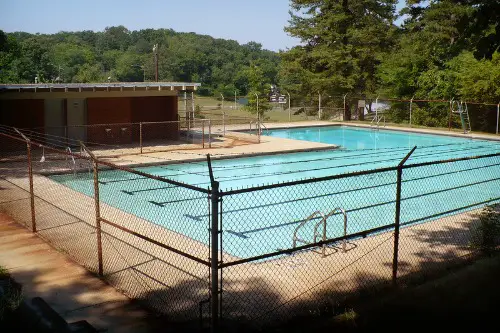
Legal codes often require public pools to have a barrier at least four feet high, with self-latching gates. This isn’t just about keeping out trespassers — it’s to prevent tragic after-hours accidents, particularly involving children. If a pool doesn’t have proper fencing, it’s considered a high-risk liability and can be shut down until the issue is fixed. Many insurance carriers won’t even cover pools that aren’t fenced according to code.
Cities have faced lawsuits from families of children who drowned in unsecured pools, prompting stricter enforcement. In some cases, closures come after citizen complaints or viral social media posts showing open gates or holes in fencing. Even a temporary lapse, like a gate left ajar, can lead to legal trouble. That’s why many public facilities now employ surveillance systems or security patrols.
6. Missing or Broken Safety Equipment
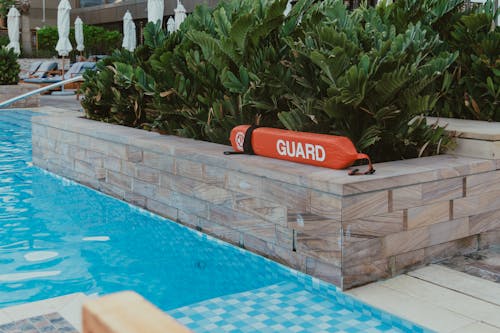
You’d be surprised how many public pools don’t have working life rings, shepherd’s crooks, or even proper signage. These aren’t optional — they’re mandated by law in most jurisdictions for emergency response readiness. If a drowning or near-drowning occurs and the required equipment isn’t available or functional, the legal consequences are massive. Pool closures often follow even minor lapses here, as cities aim to avoid lawsuits and tragic accidents.
Inspectors routinely cite missing rescue gear as a code violation, especially in older facilities with outdated infrastructure. Pools serving children or non-swimmers are held to even higher safety standards. It’s not enough to simply have equipment on-site — it has to be accessible, maintained, and tested regularly. Neglecting this can lead to immediate shutdown until corrections are made.
7. Unlicensed Pool Operation
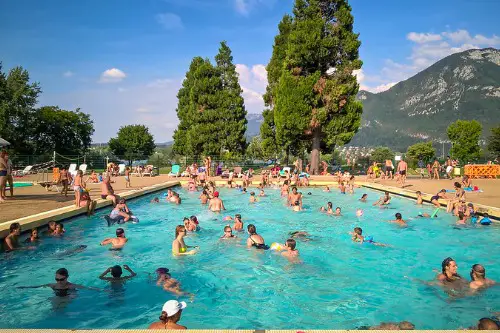
Operating a public pool without a valid health department permit is illegal in most U.S. states. Permits are usually tied to annual inspections and proof of code compliance. Sometimes pools forget to renew in time, or they attempt to open before final approval, which can result in forced closures. In some states, operating without a permit can even lead to misdemeanor charges.
Legal requirements around licensure have become more strictly enforced as local governments push for better accountability. Permits help ensure that safety standards are consistently applied across facilities. The public has a right to know that a pool meets basic health and safety benchmarks. So when a pool tries to bypass that process, authorities act fast.
8. Mold and Mildew in Locker Rooms
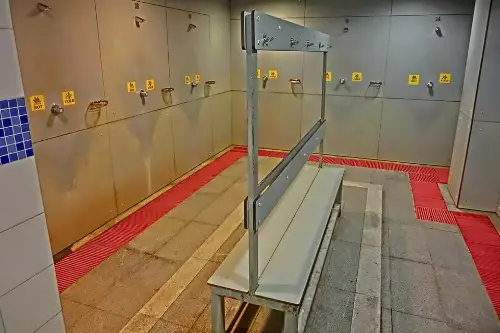
While the water in the pool might look clean, the surrounding areas like locker rooms and showers are often a hidden hazard. Black mold and mildew not only smell awful, but can pose serious respiratory risks, especially to children and seniors. Health departments have the authority to shut down a pool if adjacent facilities are unsanitary. In humid environments, mold grows fast — especially when ventilation is poor.
Pool staff sometimes overlook these areas, focusing more on water quality than facility cleanliness. But legally, the whole complex is treated as one health environment. Failing an inspection in locker areas can trigger a shutdown just like a bad chlorine reading. And once mold is found, reopening requires expensive remediation work.
9. Slip-and-Fall Hazards
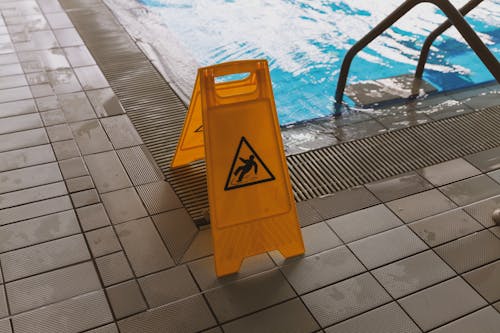
Pool decks must meet specific safety standards to prevent slips and falls, including textured surfaces and adequate drainage. If inspectors find cracked tiles, standing water, or algae-covered surfaces, a shutdown order often follows. Cities can be sued under premises liability laws if someone gets injured due to neglect. Some states even mandate slip-resistance testing on a regular basis.
Lawsuits over falls near pools are among the most common injury claims. Municipalities know that insurance payouts for a broken hip or concussion can exceed six figures. That’s why even small issues like warped rubber mats or loose grates can become big problems. In many cases, facilities are closed for just a few days while repairs are made — but the legal risk is too high to ignore.
10. Improper Drain Covers
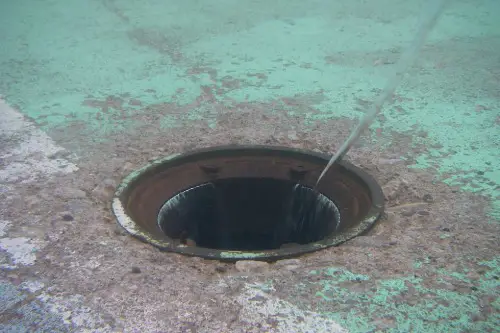
After the Virginia Graeme Baker Pool and Spa Safety Act passed in 2007, drain safety became a national legal priority. The law requires anti-entrapment drain covers to prevent swimmers — especially children — from being suctioned underwater. Pools without these compliant drain covers are in violation of federal law and are often shut down immediately. Even well-maintained pools have been caught out on this during routine checks.
Suction entrapments have caused several fatal accidents, making this one of the most emotionally charged legal issues in pool safety. The law also applies to spas, kiddie pools, and even hotel hot tubs. Replacing a drain cover isn’t hard, but it has to be done by a certified contractor and documented. If there’s no proof of compliance, closure is the usual outcome.
11. Illegal Chemical Storage
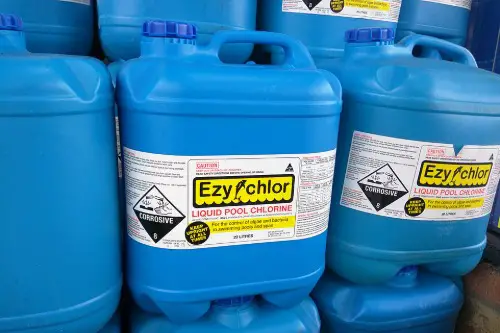
Storing pool chemicals like chlorine and muriatic acid isn’t just a matter of stacking bottles on a shelf — it’s tightly regulated. Chemicals must be stored in separate, ventilated areas to prevent dangerous reactions. Improper storage can lead to fires, toxic gas leaks, or injuries to staff, all of which carry serious legal consequences. Fire marshals and health inspectors often collaborate on these checks.
Some public pools, especially older ones, don’t have the space or updated systems to handle chemical regulations correctly. This has become a common reason for surprise shutdowns during multi-agency inspections. Facilities that store incompatible chemicals side by side — like acid and chlorine — are at particular risk. It’s a silent hazard that can quickly become a headline.
12. Not Following COVID-19 Sanitation Protocols
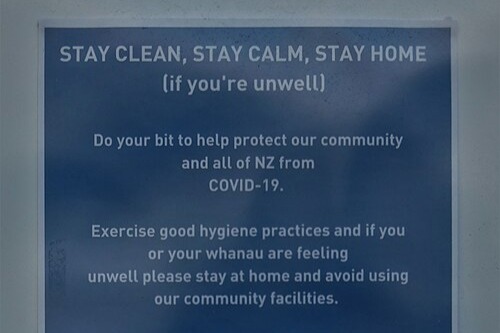
Even though the peak of the pandemic has passed, many jurisdictions still enforce sanitation protocols developed during COVID-19. These include distancing guidelines, hand sanitizer availability, and enhanced cleaning of high-touch surfaces. Pools that skip these steps can be cited for non-compliance under public health regulations. For example, failing to post updated health signage can be a technical violation.
The legal landscape has shifted post-COVID, and health departments have broad authority to enforce these rules. Lawsuits over outbreaks tied to public venues — including pools — are still making their way through courts. So cities are keeping many of these protocols in place, even if public attention has faded. Enforcement varies by state, but the legal framework remains.
13. Failure to Report Illnesses or Accidents
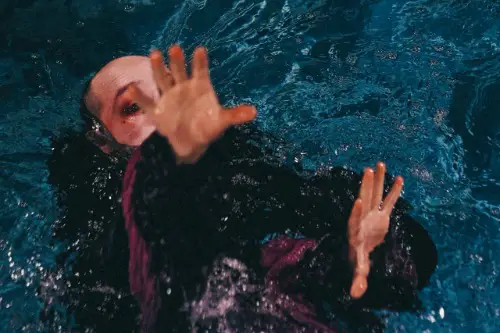
When someone vomits in a pool, has diarrhea, or is injured, operators are often required by law to report it to local health departments. Many facilities skip this step, hoping to avoid negative publicity or shutdowns. But failing to report such incidents can lead to fines, license suspension, or legal liability if the issue spreads. Some states even require temporary closure and hyperchlorination after contamination events.
This transparency is critical to public health, especially in pools frequented by children. When illness spreads and officials find out it could’ve been contained sooner, consequences are swift. A pool might lose its permit for a single unreported accident. That makes honest reporting — however uncomfortable — a legal necessity.
This post 13 Legal Reasons Public Pools Are Being Shut Down Across America was first published on American Charm.


